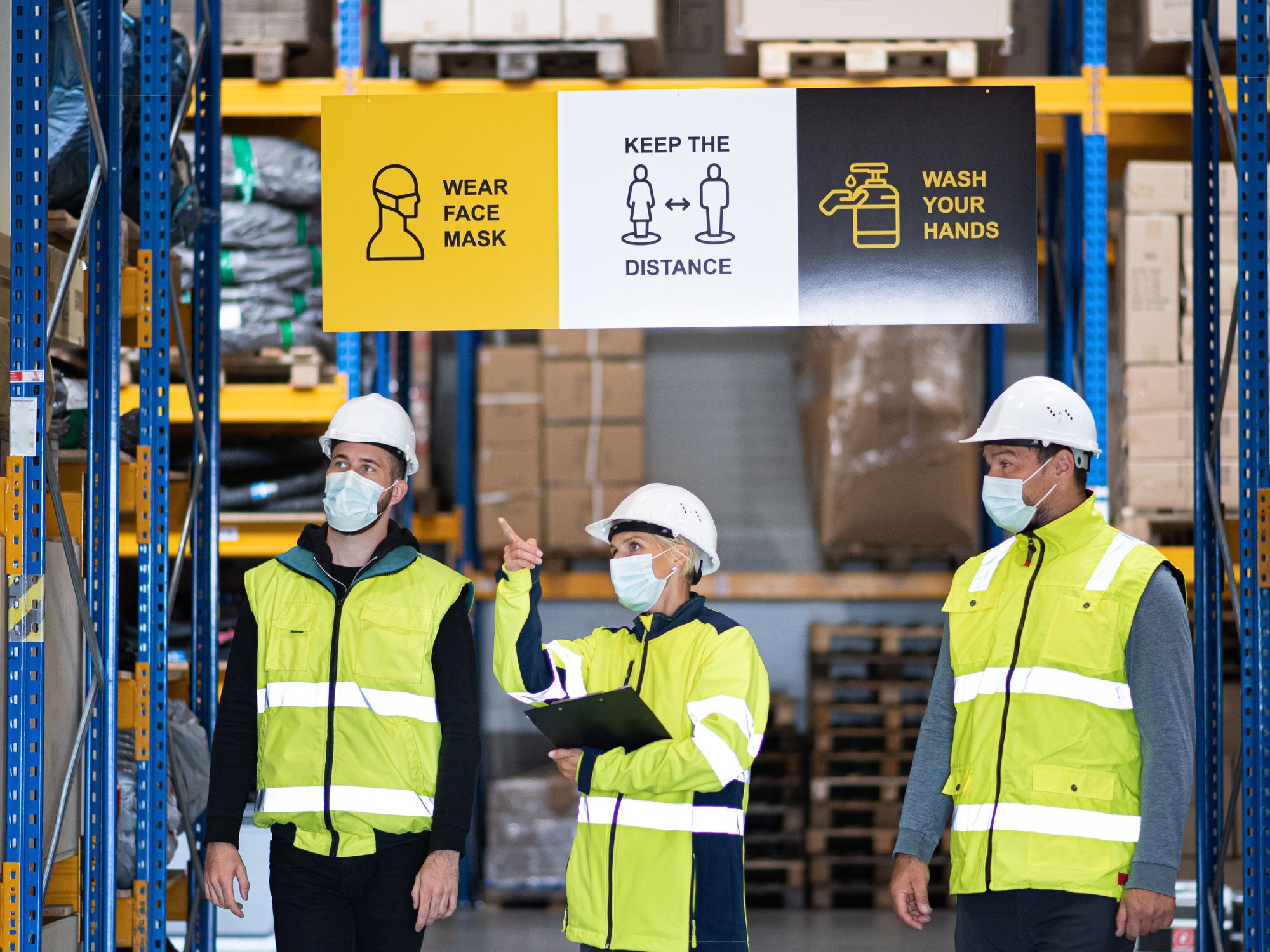
Be Part of the Ultimate Safety & Compliance Community
Trending news, knowledge-building content, and more – all personalized to you!
:
|

Employers should provide workers with face coverings or surgical masks, as appropriate, unless their work task requires a respirator or other Personal Protective Equipment (PPE). In addition to unvaccinated and otherwise at-risk workers, CDC recommends that even fully vaccinated people wear masks in public indoor settings in areas of substantial or high transmission and notes that fully vaccinated people may appropriately choose to wear masks in public indoor settings regardless of community level of transmission, particularly if they are at risk or have someone in their household who is at risk or not fully vaccinated.
Workers should wear a face covering that covers the nose and mouth to contain the wearer’s respiratory droplets and to help protect others and potentially themselves. Face coverings should be made of at least two layers of a tightly woven breathable fabric, such as cotton, and should not have exhalation valves or vents. They should fit snugly over the nose, mouth, and chin with no large gaps on the outside of the face.
Employers should provide face coverings to workers who request them at no cost (and make replacements available to workers when they request them). Under federal anti-discrimination laws, employers may need to provide reasonable accommodations for any workers who are unable to wear or have difficulty wearing certain types of face coverings due to a disability or who need a religious accommodation under Title VII of the Civil Rights Act of 1964. In workplaces with employees who are deaf or hard of hearing, employers should consider acquiring masks with clear coverings over the mouth to facilitate lip-reading.
Unless otherwise provided by federal, state, or local requirements, workers who are outdoors may opt not to wear face coverings unless they are at risk, for example, if they are immunocompromised. Regardless, all workers should be supported in continuing to wear a face covering if they choose, especially in order to safely work closely with other people.

Employers should provide workers with face coverings or surgical masks, as appropriate, unless their work task requires a respirator or other Personal Protective Equipment (PPE). In addition to unvaccinated and otherwise at-risk workers, CDC recommends that even fully vaccinated people wear masks in public indoor settings in areas of substantial or high transmission and notes that fully vaccinated people may appropriately choose to wear masks in public indoor settings regardless of community level of transmission, particularly if they are at risk or have someone in their household who is at risk or not fully vaccinated.
Workers should wear a face covering that covers the nose and mouth to contain the wearer’s respiratory droplets and to help protect others and potentially themselves. Face coverings should be made of at least two layers of a tightly woven breathable fabric, such as cotton, and should not have exhalation valves or vents. They should fit snugly over the nose, mouth, and chin with no large gaps on the outside of the face.
Employers should provide face coverings to workers who request them at no cost (and make replacements available to workers when they request them). Under federal anti-discrimination laws, employers may need to provide reasonable accommodations for any workers who are unable to wear or have difficulty wearing certain types of face coverings due to a disability or who need a religious accommodation under Title VII of the Civil Rights Act of 1964. In workplaces with employees who are deaf or hard of hearing, employers should consider acquiring masks with clear coverings over the mouth to facilitate lip-reading.
Unless otherwise provided by federal, state, or local requirements, workers who are outdoors may opt not to wear face coverings unless they are at risk, for example, if they are immunocompromised. Regardless, all workers should be supported in continuing to wear a face covering if they choose, especially in order to safely work closely with other people.